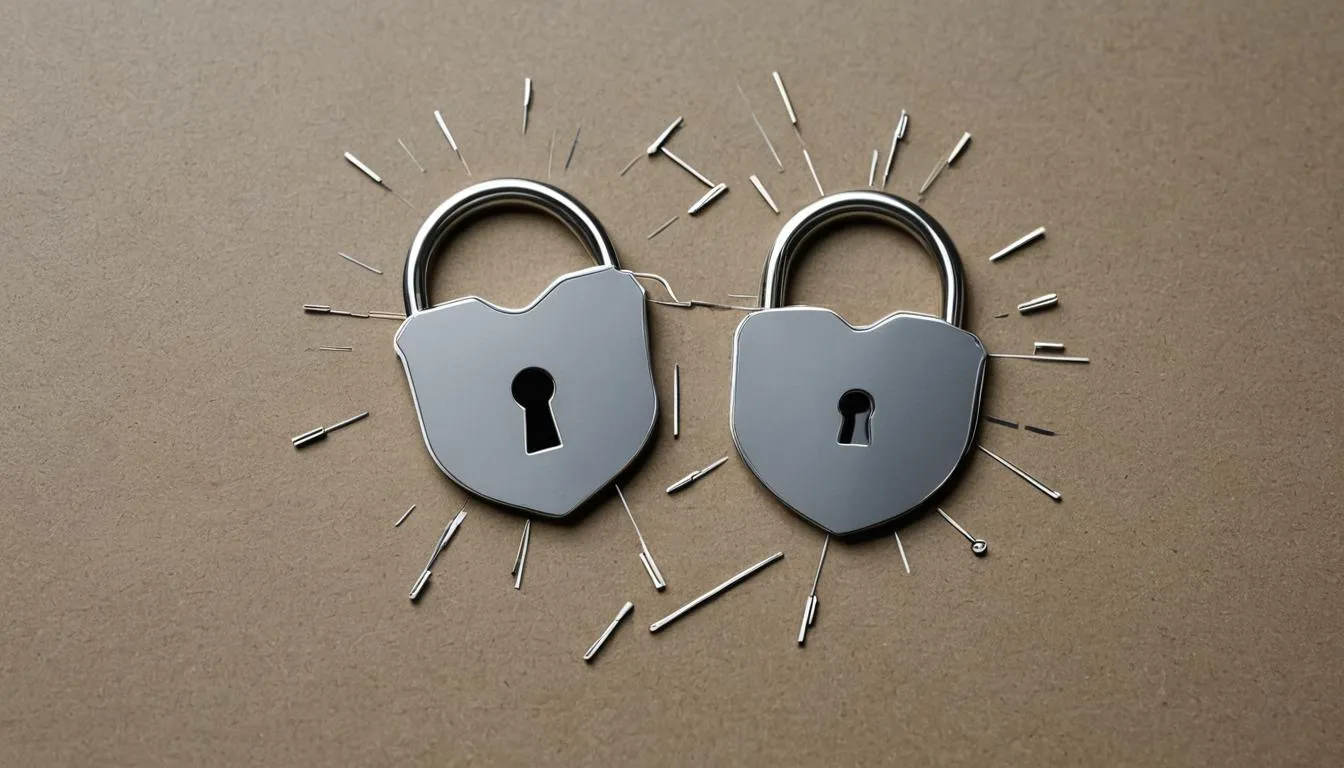In today’s digital age, cybersecurity is more important than ever. Our smartphones and computers are integral to our daily lives, storing vast amounts of personal information and facilitating countless online activities. However, these devices are also prime targets for cyberattacks. A successful hack can have devastating consequences, from data theft to device damage. This blog will explore the vital role of cybersecurity and the severe impacts of being hacked, providing essential insights to help you protect your digital world. Let’s understand the Crucial Role of Cybersecurity in Safeguarding Your Digital Life:
Understanding Cybersecurity
What is Cybersecurity?
Cybersecurity encompasses the practices and technologies designed to protect computers, networks, and data from unauthorized access, attacks, and damage. It involves a multi-layered approach to safeguard against a variety of threats, ensuring the confidentiality, integrity, and availability of information.
The Importance of Cybersecurity
Cybersecurity is essential for both individuals and businesses. It helps to:
- Prevent Data Breaches: By securing sensitive information, cybersecurity measures prevent data breaches that could lead to identity theft or financial loss.
- Maintain Privacy: Cybersecurity ensures that personal and professional communications remain private and secure.
- Ensure Business Continuity: For businesses, cybersecurity is crucial in maintaining operations without interruptions caused by cyberattacks.
Key Components of Cybersecurity
Protecting Against Malware
Malware, short for malicious software, includes viruses, spyware, and ransomware. These harmful programs can infiltrate your devices, causing severe damage. Cybersecurity measures, such as firewalls and antivirus software, play a crucial role in preventing malware infections.
- Firewalls: Act as a barrier between your device and the internet, monitoring and controlling incoming and outgoing network traffic.
- Antivirus Software: Scans your device for known malware signatures and behaviors, helping to detect and remove malicious software.
Securing Personal Information
Our devices store a wealth of personal information, from contact lists and photos to financial details. Cybersecurity helps protect this data from unauthorized access through:
- Strong Passwords: Using complex, unique passwords for different accounts adds a layer of protection.
- Encryption: Encrypting data makes it unreadable to unauthorized users, safeguarding sensitive information even if it is intercepted.
Safeguarding Online Activities
Online threats, such as phishing scams and man-in-the-middle attacks, aim to steal sensitive information or compromise your connection to a website. Cybersecurity practices help to:
- Identify and Avoid Phishing Scams: Be cautious of suspicious emails or messages asking for personal information. Look for signs like poor grammar, urgent language, or unfamiliar senders.
- Secure Your Connection: Use HTTPS websites and avoid public Wi-Fi for sensitive transactions to ensure a secure connection.
The Impact of Being Hacked
A successful hack can have far-reaching consequences, affecting your personal and professional life in numerous ways.
Data Loss or Theft
One of the most severe impacts of a hack is the loss or theft of data. Hackers may steal:
- Personal Information: This includes passwords, credit card details, and private documents. The stolen data can be used for identity theft or sold on the dark web.
- Financial Information: Hackers can drain bank accounts, make unauthorized purchases, or commit financial fraud.
Device Damage
Malware can cause significant damage to your device, leading to:
- Corrupted or Deleted Files: Important files may be lost, requiring data recovery efforts that are often time-consuming and costly.
- Unusable Devices: Severe malware infections can render your device unusable, necessitating repairs or replacement.
Privacy Invasion
A hack can result in a severe invasion of your privacy, including:
- Spying on Online Activity: Hackers may monitor your internet usage, steal messages, or access sensitive information.
- Unauthorized Access to Webcam: In some cases, hackers can take control of your webcam, compromising your personal privacy and security.
Disruption and Downtime
Ransomware is a type of malware that locks you out of your device or data until a ransom is paid. This can lead to:
- Disruption of Personal Life: Losing access to important files and applications can be incredibly disruptive.
- Business Downtime: For businesses, ransomware can halt operations, leading to significant financial losses and damage to reputation.
Steps to Enhance Your Cybersecurity
To protect yourself from cyber threats, it’s crucial to implement robust cybersecurity measures. Here are some steps you can take:
Use Strong, Unique Passwords
- Create Complex Passwords: Use a mix of letters, numbers, and symbols to create strong passwords.
- Avoid Reusing Passwords: Use different passwords for different accounts to minimize the risk of multiple accounts being compromised.
- Consider a Password Manager: Password managers can help generate and store complex passwords securely.
Keep Software Updated
- Regular Updates: Ensure that your operating system, applications, and antivirus software are up to date to protect against the latest threats.
- Automatic Updates: Enable automatic updates to ensure that you don’t miss critical security patches.
Enable Two-Factor Authentication (2FA)
- Extra Layer of Security: Two-factor authentication adds an extra layer of security by requiring a second form of verification, such as a code sent to your phone.
- Wide Adoption: Enable 2FA on all accounts that support it, especially for sensitive accounts like email and banking.
Be Cautious with Emails and Links
- Verify Senders: Be wary of emails from unknown senders or unexpected messages from known contacts.
- Avoid Clicking on Suspicious Links: Hover over links to check their destination before clicking, and avoid downloading attachments from unknown sources.
Use Secure Connections
- HTTPS Websites: Ensure that websites you visit use HTTPS, indicating a secure connection.
- Avoid Public Wi-Fi: Avoid using public Wi-Fi for sensitive transactions. If necessary, use a virtual private network (VPN) to secure your connection.
Backup Your Data
- Regular Backups: Regularly back up your data to an external hard drive or cloud storage to protect against data loss.
- Multiple Copies: Keep multiple copies of important files in different locations to ensure redundancy.
Educate Yourself and Stay Informed
- Stay Updated: Keep informed about the latest cybersecurity threats and best practices.
- Cybersecurity Awareness: Educate yourself and others about the importance of cybersecurity and how to recognize potential threats.
The Future of Cybersecurity
As technology continues to evolve, so do cyber threats. The future of cybersecurity will involve:
Advanced Threat Detection
- Artificial Intelligence (AI): AI and machine learning will play a crucial role in identifying and mitigating cyber threats.
- Behavioral Analytics: Analyzing user behavior to detect anomalies that may indicate a cyberattack.
Enhanced Privacy Measures
- Data Privacy Regulations: Stricter data privacy regulations will be implemented to protect users’ personal information.
- User-Controlled Data: Increased focus on giving users control over their data and how it is used.
Integrated Security Solutions
- Unified Platforms: Comprehensive cybersecurity platforms that integrate multiple security solutions for easier management and improved protection.
- IoT Security: As the Internet of Things (IoT) grows, there will be a greater emphasis on securing connected devices.
Conclusion
Cybersecurity is an essential aspect of our digital lives, protecting our devices, data, and online activities from various threats. By understanding the role of cybersecurity and the potential impacts of being hacked, you can take proactive steps to safeguard your digital world. Implementing strong passwords, keeping software updated, enabling two-factor authentication, and staying informed about the latest threats are just a few ways to enhance your cybersecurity. As technology advances, staying vigilant and adopting new security measures will be crucial in protecting yourself from evolving cyber threats.
Investing in cybersecurity is not just about protecting your devices—it’s about securing your personal and professional life from the myriad of dangers that exist in the digital realm. Make cybersecurity a priority today to ensure a safer and more secure tomorrow.


Leave a Reply